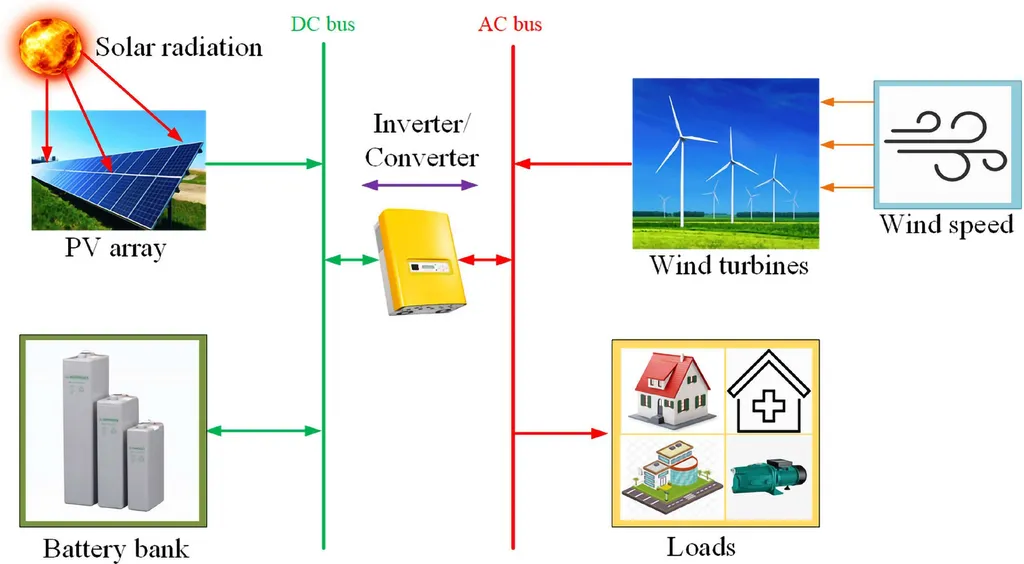In the rapidly evolving landscape of renewable energy, the integration of photovoltaic (PV) systems into off-grid applications is gaining momentum. However, this shift presents a formidable challenge: managing energy supply under unpredictable load behavior and intermittent resource availability. A recent study published in *Engineering Results* offers a promising solution to this pressing issue, potentially reshaping the future of autonomous PV microgrids.
The research, led by Mohamed Aatabe from the National School of Applied Sciences at Ibn Zohr University in Agadir, Morocco, introduces a novel approach to energy management. The study proposes a stochastic predictive control (SPC) method that leverages a Markov decision process (MDP) to optimize real-time energy management in DC photovoltaic microgrids. This approach aims to balance power generation, load consumption, and energy storage, even under stochastic load conditions.
“Autonomous PV microgrids face significant stability and efficiency challenges due to the inherent unpredictability of energy generation and consumption,” Aatabe explains. “Our study addresses these challenges by providing a robust and adaptive solution that enhances system resilience and energy utilization.”
The proposed SPC approach is designed to optimize the real-time balance between power generation, load consumption, and energy storage. By integrating an MDP, the method adapts to unpredictable load variations, ensuring stable and efficient operation of the microgrid. Simulation results in realistic scenarios demonstrate the effectiveness of the proposed method in stabilizing the microgrid, reducing oscillations, and managing battery charge and discharge cycles.
The implications of this research are significant for the energy sector. As the reliance on renewable energy sources continues to grow, the need for efficient and reliable energy management systems becomes increasingly critical. The proposed SPC approach offers a promising solution to these challenges, potentially enhancing the performance and reliability of off-grid renewable energy applications.
“This study advances the field of autonomous PV DC microgrids by providing a robust and adaptive solution,” Aatabe notes. “The findings have significant implications for enhancing the performance and reliability of off-grid renewable energy applications.”
As the energy sector continues to evolve, the integration of advanced control strategies like the one proposed by Aatabe and his team could play a pivotal role in shaping the future of renewable energy management. By addressing the challenges of stochastic load conditions and intermittent resource availability, this research paves the way for more stable, efficient, and reliable off-grid energy systems. The study, published in *Engineering Results*, represents a significant step forward in the quest for sustainable and resilient energy solutions.

